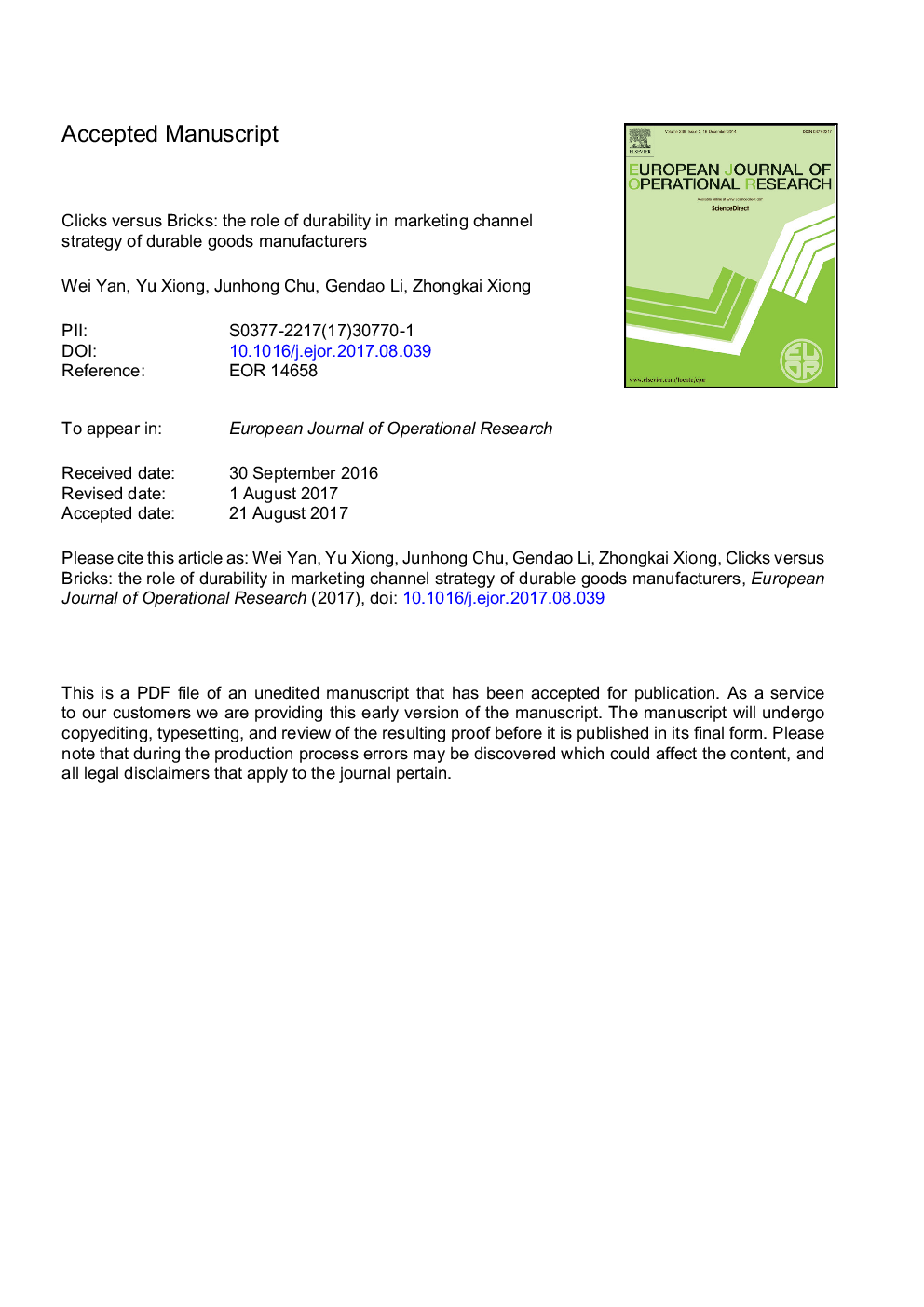| Article ID | Journal | Published Year | Pages | File Type |
|---|---|---|---|---|
| 6895228 | European Journal of Operational Research | 2018 | 34 Pages |
Abstract
We develop a two-period dual-channel model for a durable goods manufacturer to investigate how product durability and the channel structure create strategic issues that are significantly different from those in managing a dual channel for nondurables. The manufacturer can sell directly by its own e-channel and indirectly via an independent reseller. Our game-theoretic model nests Arya et al. (2007) as a special case when product durability reduces to zero and thus generalizes it to the durable goods setting. The equilibrium solutions indicate that, when the product is durable, both parties' profitability strongly depends on product durability and direct selling cost. In particular, we find that, compared to encroaching the reseller's market by direct selling online, it is optimal for the manufacturer to open an inactive e-channel that serves only as an information medium. Moreover, we find that, contrary to Arya et al.'s (2007) results, if product durability is moderate, for any direct selling cost, manufacturer's encroachment is always detrimental to the reseller, and thus its bright side disappears. We test our model's theoretical predictions of the effects of product durability on manufacturer's and reseller's profitability with data from the U.S. x86 computer server market, and find strong empirical support-profitability of both parties is higher when product durability is sufficiently low or sufficiently high, and lower when durability is intermediate.
Related Topics
Physical Sciences and Engineering
Computer Science
Computer Science (General)
Authors
Wei Yan, Yu Xiong, Junhong Chu, Gendao Li, Zhongkai Xiong,
